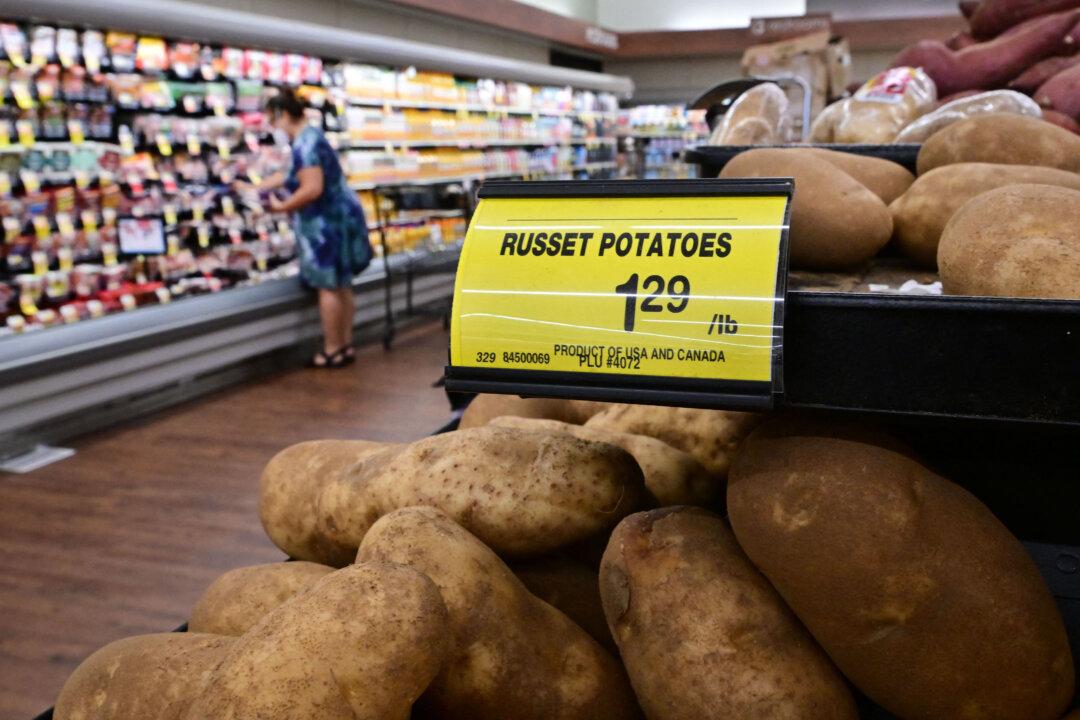Record-high inflation is beginning to affect the majority of ordinary Americans’ standard of living this year.

A shopper is seen past a sign displaying the price per pound of russet potatoes at a supermarket in Montebello, Calif., on Aug. 23, 2022. Frederic J. Brown/AFP via Getty Images




